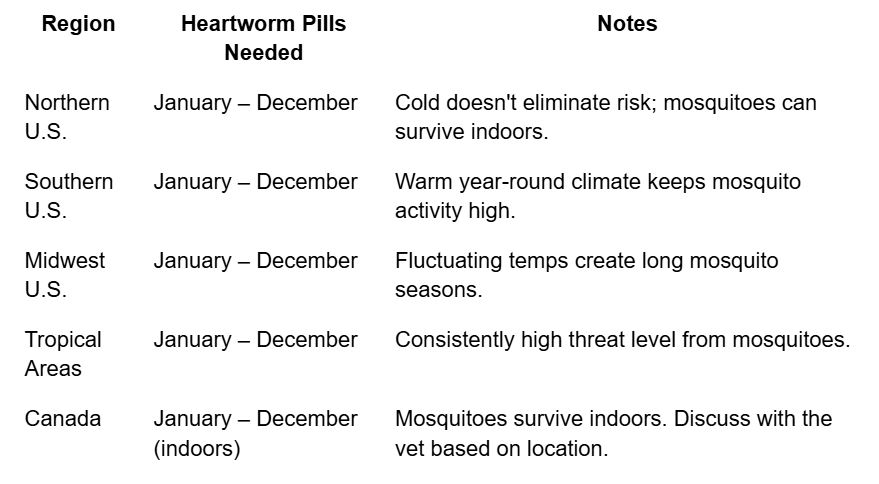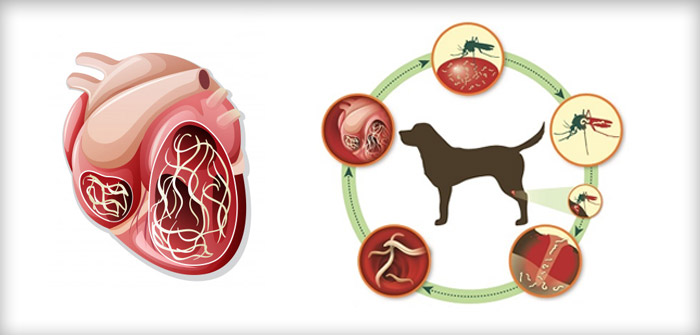Dogs need heartworm pills every month, all year round—even during winter. Skipping months increases the risk of infection, as heartworm larvae can mature before symptoms appear and mosquitoes can survive indoors and in mild climates.
You’ve Been Lied to About Heartworm Pills — Here’s the Truth

You may have heard that heartworm prevention is only necessary during mosquito season. This outdated advice is dangerous. At Careers Collectiv, we teach that heartworm disease is a year-round threat, not just a seasonal nuisance.
Many pet owners delay or stop medication during colder months, assuming there’s no risk. The reality? Heartworms don’t follow a calendar—and skipping doses, even once, can lead to lifelong consequences for your dog.
Do Dogs Only Need Heartworm Pills in Summer?

Many believe that dogs only need heartworm pills in warm months. Here’s why that’s a myth:
- Myth 1: Mosquitoes don’t exist in winter
Truth: Some mosquitoes survive indoors or in warm microclimates. - Myth 2: Heartworm larvae can’t mature in the cold
Truth: Larvae begin developing long before temperatures drop and can remain dormant until conditions are right. - Myth 3: Heartworm isn’t common in my area
Truth: Heartworm disease has been reported in all 50 states, and cases are increasing in non-tropical zones. - Myth 4: Monthly meds aren’t necessary with occasional mosquito exposure
Truth: One bite is enough. And by the time symptoms appear, the disease is already advanced. - Myth 5: Winter is a “safe window” to stop pills
Truth: There’s no safe window. Once infected, treatment is costly and dangerous compared to prevention.
The Real Reason Vets Recommend Year-Round Heartworm Prevention

Veterinary experts including the American Heartworm Society (AHS), FDA, and AVMA unanimously support year-round prevention. Here’s why:
- Heartworm medications work retroactively — They eliminate immature larvae from the previous month. Miss a dose, and those larvae can mature.
- Climate unpredictability — Mosquito season is expanding due to warmer winters and erratic weather.
- Indoor risks — Mosquitoes don’t disappear when your dog is inside. Indoor mosquitoes are common carriers.
- Disease is hard to detect early — By the time your dog tests positive, damage has already begun in the heart and lungs.
Veterinarians no longer base recommendations on mosquito seasons. The new standard: year-round protection, no matter where you live.
Regional Heartworm Prevention Calendar: Month-by-Month Breakdown

What Happens If You Skip a Month of Heartworm Pills?

Skipping even one month of heartworm prevention can lead to serious consequences:
- Heartworm larvae mature undetected — The meds only kill immature larvae. Mature worms require invasive treatment.
- Dogs may go months before testing positive — Symptoms often show after internal damage has occurred.
- Treatment is harsh and expensive — Requires arsenic-based injections, strict crate rest, and vet monitoring.
- Missed dose = lost protection — You don’t just resume from where you left off. You start vulnerable.
Imagine skipping insurance for just one month—then needing it. That’s what missing a heartworm pill is like.
Should Indoor Dogs Take Heartworm Pills in the Winter?

Yes, absolutely.
Here’s why indoor dogs still need monthly pills—even in winter:
- Mosquitoes live indoors — They hide in basements, bathrooms, garages, and entryways.
- One bite is all it takes — Indoor or not, exposure exists.
- FDA states: “Even indoor pets are at risk and should receive year-round prevention.”
Don’t let indoor living give you a false sense of security.
Understanding the Heartworm Lifecycle (And Why Timing Matters)

The lifecycle of heartworms reveals why timing and consistency are critical:
- Mosquito bites dog → Transmits immature larvae.
- Larvae develop over 6 months → Mature into worms.
- Worms lodge in the heart and lungs → Begin causing irreversible damage.
- Infected dog shows no symptoms early on → Detection is often too late for easy intervention.
Monthly prevention kills larvae before they reach dangerous stages. If doses are missed, the larvae progress unchecked.
Natural Alternatives vs Vet-Prescribed Heartworm Meds: What Works?

Some owners prefer holistic or natural remedies. Here’s a balanced look:
Natural Options
- Garlic, black walnut, wormwood, and diatomaceous earth are commonly promoted.
- However, there’s no peer-reviewed scientific evidence that these prevent heartworms effectively.
Vet-Prescribed Meds
- Ivermectin-based products (Heartgard, Trifexis, etc.)
- Proven through decades of research.
- Backed by FDA, AHS, and veterinary studies.
Conclusion: Natural options lack scientific backing. The risk outweighs any perceived benefit. Stick to vet-recommended meds.
FAQ
When do I start heartworm meds for my puppy?
At 6–8 weeks old, after a vet check and test.
Do I need to give heartworm pills all year?
Yes, 12 months a year—no safe gaps.
How do I know if my dog is safe to skip winter meds?
You don’t. Even one mosquito bite can lead to infection.
Can I give heartworm meds without a test?
Not safely. If your dog is already infected, meds can cause severe reactions.
Do natural remedies prevent heartworms?
No scientific evidence supports this. Stick with vet-prescribed options.
Still Wondering What Months Dogs Need Heartworm Pills?
If you’re unsure or need a customised prevention schedule, consult your vet.
Careers Collectiv encourages responsible pet care backed by science, not hearsay. Download our printable monthly chart, talk to your vet, and protect your dog with year-round heartworm prevention.
Let common sense—and data—guide your decisions. Your dog’s life depends on it.